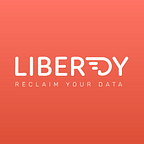Time to Say Goodbye to Google & Facebook’s Walled Gardens
Telegram Twitter Facebook Linkedin
It’s no secret that a duopoly exists in the Adtech industry, with Facebook and Google taking the lion’s share of ad market revenues. According to the advertising trade group Digital Content Next, these two digital giants alone are responsible for up to 90% of the ad industry’s annual growth.
So how have just two companies managed to assert their dominance so thoroughly? Well, a primary source of their unparalleled success is their use of a walled garden to provide access to their exclusive data stores.
What is a Walled Garden and How Have Facebook & Google Benefited?
A walled garden is a closed ecosystem, in which a one, or two entities control all operations, and in the digital marketing industry Google and Facebook hold all the cards.
Facebook and Google are selling their own inventory, while also representing the demand side and controlling the price of their ad slots.
They can gather their data on users and then force their clients to run their campaigns using the digital companies’ entire marketing stack, including their Data Management Platforms (DMP’s), and Demand Side Platforms (DSP’s). By not providing integration with client systems, they are preventing the client from ever exporting the data and only providing them with aggregated metrics. In such a manner, Google and Facebook have ensured airtight systems with zero data leakage.
Moreover, by forcing advertisers and publishers to embed Google and Facebook tracking pixels on their sites, they are further tightening their stranglehold on user data, gathering even more information, by monitoring user activity on external websites.
As the providers of the main tracking and reporting tool to monitor the performance of the campaigns on their networks, Google and Facebook can calculate and represent statistics as they wish, unchallenged. They can also gain even more data on their clients’ users by requiring their clients to provide a list of all buyers, if the client wants to calculate the campaign’s ROI.
The grip these digital giants have over the Adtech industry means up to now it has been hard to hold them accountable for a reckless approach to user privacy and security or incentivize them to change their policies.
Is it Possible to Create a Fairer Ecosystem?
As it stands, the Adtech industry is a closed, opaque and anti-democratic system designed to benefit an incredibly powerful data duopoly that is sucking up all the oxygen in the room and leaving everyone else to suffocate.
However, the status quo is about to change, and a revolution is underway. The first indicator is the fact that in the wake of a lengthy list of recent data breaches including Yahoo, Uber, Equifax, Twitter and of course, Facebook, users are finally waking up and saying enough is enough. In addition, GDPR regulation will be taking effect on May 25th, 2018. The GDPR is an EU privacy bill which states that the user is the owner their data and that online companies must gain user consent to use this data, while also making an electronic copy available to the user free of charge.
In addition, an alternative ecosystem has emerged that looks set to break Google and Facebook’s hold over the data marketplace.
The Liberdy Data Foundation is a non-profit organization that redresses the balance and creates a new, and fairer permission-based advertising ecosystem. Basically, the Foundation leverages the GDPR in combination with blockchain technology to establish a transparent, secure and democratic data trading marketplace, where users are paid for the use of their data. Equally, advertisers can now access a wealth of consent-based verified and highly accurate user data which was previously only available via the walled gardens of Google and Facebook.
The Foundation extracts an electronic copy of the user’s data from the likes of Google, Facebook and Amazon, it then segments the data and purges personally identifiable information. The use of blockchain technology further ensures the security and privacy of user data, as a decentralized storage system cannot be controlled by any single entity and is virtually un-hackable.
While users regain control over their personal information, choosing which data they wish to share and with whom they also benefit from anonymization that safeguards their privacy, and are financially rewarded each time an advertiser uses their data.
Liberdy also protects users and incentivizes them to provide publishers with their consent, by means of an anonymous login for 3rd party sites, which allows secure and anonymized interactions across the web — without exposing personal identifiable information. The publisher benefits, from being able to leverage the Foundation’s data pool and more effectively sell value added services like premium features or subscriptions.
Meanwhile, advertisers now have unprecedented access to information that comes from a cross-section of data sources, including social media sites, online retailers to search engines and more, all of which are are validated by the users themselves. This validated, comprehensive data view is more secure than any other, while also being far more precise. Additionally, the data integration provides cross device tracking which supports accurate, yet safe audience targeting.
As an open source initiative, the Liberdy Foundation develops and maintains an-end to-end technological infrastructure of protocols and API’s, to enable seamless data integration and fair, transparent interactions.
In such an ecosystem everybody wins, not just the most powerful players and the time is ripe for change. Global regulation is taking on issues of user privacy and consent; public sentiment is shifting dramatically regarding data subjects’ rights and blockchain technology is presenting fresh opportunities for secure and transparent transactions. The days are numbered for the walled gardens of Facebook and Google, as an exciting, fairer future for the Adtech industry emerges.
To learn more about Liberdy.io please join our communities: Liberdy.io Telegram Twitter Facebook Linkedin and get the latest updates or email us at info@liberdy.io
